Ukrainian pilots can be trained in Romania, at Base 86, by contract, but Romanian pilots have priority for training on F-16 aircraft, the minister of National Defense, Angel Tilvar, said in an interview granted to AGERPRES.
"As it emerged from the decisions we made at the political level, in Romania (Ukrainian pilots, ed. n.) they are not excluded, but it will be on a contractual basis," the minister pointed out, adding that at least three states have expressed the desire, until now, to send pilots to this training center, agerpres reports.
He also spoke about the security situation at the border.
"At this moment there is no form of violation of the national territory, be it land, naval or air. From this point of view, Romanian citizens are in a state of absolute safety," he argued.
Regarding the cancellation of the corvette acquisition process, the minister explains that there are no "things imputable to the Ministry of National Defense" and that "Romania has not lacked defense plans that include the Black Sea".
Regarding the Battle Group from Cincu, Tilvar states that currently "there is no operational need for raising it to the rank of brigade".
"This does not mean that we are not prepared to do it," the minister adds.
AGERPRES: Mr. Minister, today, the Ministry of National Defense denied the fact that Russian drones have fallen on Romanian territory, practically denying an information coming from the Ukrainian Foreign Ministry, as if these drones had fallen on Romanian territory during the attacks on Ukrainian ports, where grain is transported. The first question is: related to the transport of grain by Romanian seafarers, Ukrainian grain, if the Ministry of Defense contributes or is going to contribute to the defense of Romanian seafarers who transport these grains from Ukrainian ports, which are repeatedly attacked?
Angel Tilvar: Firstly, I will start by doing what I normally do, which is to condemn what Russia is doing in Ukraine. I do it every time we have such incidents, because these things are imputable to Russia. Ukraine is a sovereign state, which is under an act of aggression from Russia, and it is normal for Romania, which is a democratic state, belonging to the democratic world, to condemn such actions. Secondly: As you said, the Ministry of Defense denied that Russian drones have fallen on national territory and did so knowingly, because - and now I'm answering your question - we are present with all that means warning capabilities and to monitor the situation in the area, which is why the information we provide is accurate and correct from all points of view.
AGERPRES: But the defense of Romanian seafarers itself, because the problem has been raised several times, the Romanian seafarers who go to these Ukrainian ports, repeatedly attacked and come to Romania on the Danube, can be ensured by the Ministry of Defense?
Angel Tilvar: This is not necessarily about the involvement of the Ministry of Defense, because in Romania's security architecture we also have the Coast Guard, we also have the Border Police. So, there was no question of the Ministry of National Defense having extraterritorial powers in this regard.
AGERPRES: But from the moment they come to the Romanian territory, it is already insured...
Angel Tilvar: It is Romanian territory and there things happen according to Romanian legislation and it is about Romanian citizens who benefit from the protection of the Romanian state, in the case you mentioned.
AGERPRES: To what extent can you reiterate the assurances that the Ministry of Defense has given countless times in situations similar to the attacks on the ports on the Romanian border? To what extent can you reiterate the fact that Romania is not and will not be targeted by Russian attacks from the border, from a few kilometers from the border?
Angel Tilvar: Firstly, I am glad that you are bringing this up, because I think it is important that the citizens of Romania know from the voice of the Ministry of National Defense, but also from what I am saying now in the interview that you have the kindness to give me. l take the fact that at this moment there is no form of violation of the national territory, be it land, naval or air. So, from this point of view, Romanian citizens at this moment are in a state of absolute safety, and life in Romania can go on normally, because, after all, this is the goal of the Ministry of Defense - to ensure that life of Romanians proceed normally.
AGERPRES: Recently, the American Senate approved the security plan for the Black Sea - the Black Sea Security Act - and defined the Black Sea region as an "arena of Russian aggression", so it is written in the official document. What is Romania's situation, that is, Romanian security at the Black Sea, with its own forces at this moment? And I ask you because there are problems related to the Romanian fleet...
Angel Tilvar: I want to tell you that this Black Sea Security Act is a document that we have been waiting for. I will not hide from you the fact that the Romanian delegations or the Romanian politicians who went to Washington, in whatever format it was, including discussions with think-tanks and policy makers in Washington, had as their topic the Black Sea. The Black Sea concerns us because, being a riparian state and being a state that is in the proximity of the conflict in Ukraine, I think it could not be otherwise. Ever since Madrid, when the issue of the new strategic concept was raised, but also when it came to the strategic compass at the European level and here, now, in Vilnius, at the Summit from which we returned not long ago, the Black Sea appears as an important region from the point of view of the NATO agenda and we are glad that it has gained relevance, I think, also due to Romania's diplomatic efforts, Romania's political-military efforts, so that the Alliance is aware of the fact that the Black Sea space is a space where, as you said, Russia continues to harass, provoke, test reactions and so on. Here is one of the reasons why we, at the level of the Ministry of National Defense, consider that the Black Sea is important for the entire Eastern Flank, because I want to repeat what I've said on other occasions: Romania, as a member and as part of an important political-military alliances - perhaps the most important in the history of humanity -, understands to assume the tasks it has within the Alliance, at the same time to signal and generate topics of concern and interest for the entire Alliance.
From our perspective, to go back to the second part of your question, at this time, the 11 ships that we have or the naval helicopters or the drones or the capabilities related to the use of our diver teams - because, let's not forget, that more than 70 mines were detected in the Black Sea, five of which were neutralized by our teams - they have the possibility, in conjunction with other capabilities, to monitor and ensure an understanding of what is happening both for us and for the allies whom we are constantly in contact with, to confirm, on the one hand, the relevance of the Black Sea from a security point of view, but at the same time, for the citizens of Romania and of the Alliance, because we are on the Eastern border of the Alliance, of both the European Union and the North Atlantic Alliance, to make a security contribution that is more than obvious, I think.
AGERPRES: The long process of the corvette acquisition that was cancelled by the Ministry of National Defence has raised this security issue in the Black Sea. I am asking you now, as regards the cancelled corvette process, if there are lessons learned, what will follow after this, will a new procurement process start?
Angel Tilvar: I want to tell you that up to the point where these corvettes were due to be delivered, Romania did not lack defence plans that included the Black Sea, so they were part of the defence architecture, having their own role, but Romania had prepared alternatives to complement. As far as lessons learned are concerned..., we definitely would have wanted these capabilities, otherwise we would not have expressed the desire to have them, but I do not think that these are things attributable to the Ministry of National Defence. We were beneficiaries. There was an agreement between an economic entity, a company and another company in Romania. They failed to agree, they failed to meet their own commitments, which is why, after we asked the Naval Forces again to make (a request - ed. n.) to the committee that procedurally exists in such situations, there was nothing left for us to do but to note that they failed to meet their own commitments and to cancel this acquisition. So, I repeat, this is not the fault of the Ministry of National Defence. At the same time, my colleagues in the Naval Forces are evaluating other possibilities to complement what we want operationally from those capabilities.
AGERPRES: As for these possibilities... could you talk about them?
Angel Tilvar: At this moment it would be premature, not for confidentiality reasons, but simply because I don't have a very clear answer for you and I don't want to launch into the public space things that are rather personal opinions or speculations. I believe that the discussion will take place in a more applied manner when I have an answer that is applied.
AGERPRES: And now, coming to the subject of military procurement, how extensive will military procurement projects be in the future? We have 2.5 percent of GDP allocated to Defence, some tenders have already been announced for howitzer systems, for drone systems. What comes next?
Angel Tilvar: First of all, I am glad that you note that it is about procurement, there has been extensive procurement. These large acquisitions did not start this year. For six to seven years, Romania has been one of the countries where citizens have understood the need to have these capabilities. And yet, this unprovoked war of aggression by Russia against a sovereign state has found us in the position of having state-of-the-art capabilities. And here I am referring to PATRIOT or HIMARS. It has found us in a position to have the defence needs met, something that is desired by many others. So, after these six years of 2 percent of the Gross Domestic Product, the Romanian Parliament, the citizens of Romania, ultimately - although Romania is a country that has many problems to solve - have understood - and I am grateful to them for this - that money is not necessarily spent on Defence, it is invested in defence and in our peace and security and this 2.5 percent of the Gross Domestic Product allows us to continue our procurement programmes in such a way that. .. Well, this is an ongoing process and in five years time the Ministry of Defence will probably want more capabilities, in 10 years time more capabilities and so on. But our desire to have things that are of a high level from a technical, technological and interoperability point of view, because this is another desire of the Romanian Army and it is also an obligation that stems from our belonging to a military bloc.
The fact that we have the F-35 to be delivered... Perhaps as a deadline, when we talk about 2030, it may seem like a distant deadline. But if we think that in this kind of procurement of capabilities these are the deadlines, we will see that Romania will have, before long, these capabilities.
If we take a comparative approach to other countries, some of them of means, you will see that we are doing fairly well. Then, the fact that 32 F-16s are due to be delivered to us is important here, and I can't help but mention the F-16 training centre that will be run by Romania and which, at Base 86, will enable Romanian pilots to prepare for the F-16s that are to come, as well as other members of the Alliance or other partners willing to do this in Romania.
In time, we would like this centre to become a regional hub, because I believe that Romania has demonstrated its vocation as a security donor in this area. I believe that the Romanian military, wherever they have been, have proven that they come from an army that can provide very well trained soldiers and I would see, at the risk of being perhaps a little less modest, I would see this centre as a recognition of Romania's ability to host and bring such projects.
AGERPRES: Precisely because you talked about the F-16 training centre, the Ministry of Defence press releases emphasize that Romanian pilots will be professionalised, but Romania has signed its membership in the international coalition that will also train Ukrainian pilots.
Angel Tilvar: Obviously, this will be done on a contractual basis, I stress: Romanian pilots will have priority. So far there are at least three other countries that have expressed a desire to send pilots to this training centre and obviously there are stages, because you probably know, yes, I will do it for those who read us or who follow us: there is a collaborative approach between us, between the Netherlands and between Lockheed Martin. Our partners in the Netherlands will provide the Lockheed Martin aircraft, they will provide the training and the training elements in terms of maintenance and Romania, as the host country, will certify, will contribute with everything related to the infrastructure and it's no small thing and I think the result will be very good.
What I would like to point out is that this centre was announced at the Vilnius Summit and this is no small thing, because the Vilnius Summit was not lacking in events and communication elements and things happened quite quickly. Last week, I had the honour to represent the Ministry of National Defence at the meeting in Madrid, where we signed with Lockheed Martin, with my Dutch counterpart for this training centre at the Embassy of the Netherlands in Spain. I think it is a good thing, whose significance and importance will grow as time goes by.
AGERPRES: As for the Ukrainian pilots... is there a time frame when they will come for training?
Angel Tilvar: As it resulted from the decisions we made at the political level, in Romania they are not excluded, but it will be on a contractual basis, taking into account the training architecture of Ukrainian pilots, which is designed at the European level, in which they can do this training not only in Romania, but Romania is willing and has, will have the necessary capacity. This can also be done.
AGERPRES: And the training will start...?
Angel Tilvar: It will start once the technical agreements have been concluded and they are a mandatory step for such an approach and I believe that by the end of the year we can discuss this, which, again, in terms of such initiatives means very quickly.
AGERPRES: You mentioned that you attended the informal meeting of ministers in Toledo.
Angel Tilvar: Indeed.
AGERPRES: I read in the press release issued by the Spanish Presidency of the Council of the European Union some of the conclusions of this meeting, and there it was mentioned that so far 25,000 Ukrainian soldiers have been trained in the countries of the European Union and the number of these Ukrainian soldiers who are trained on EU territory is set to increase to 30,000. My question is: will there be Ukrainian servicemen trained on the territory of Romania?
Angel Tilvar: If we decide this depending on the operational needs they have, I believe this can be achieved.
AGERPRES: But at the moment there is no...
Angel Tilvar: At this moment, the things that were done from the point of view of preparation were done within the EUMAM mission (EU Military Assistance Mission, ed. n.), to which you have access with all the details and there you can check all these things.
AGERPRES: I have to ask you the question: does Romania's military support for Ukraine exist?... The transit of military equipment on Romanian territory?
Angel Tilvar: We made the decision - and this was said by several voices - to do this in a way that would not create any level of concern or any level of alert on the part of Romanian citizens. Military support means many things. Military support also means exchange of information when it comes to, for example, the mines floating in the Black Sea. It also means elements that we also have for warning and - as I told you - we have increased the level of vigilance that we also have in the area of the Danube and the Black Sea. It means things related to collaboration when moving objects that can be suspected as mines in the area... These things are also done at the level of military dialogue and so on. They can also be understood as support.
AGERPRES: But transit of weapons on Romanian territory or weapons given by Romania to Ukraine existed, or can you talk about this?
Angel Tilvar: I would prefer to be more reserved in giving such details, which are not spectacular, but which still relate to the way we understood to refer to them.
AGERPRES: Since the beginning of the war in Ukraine, the Cincu Multinational Battle Group was formed and grew. On Tuesday, Mr. President will visit the Battle Group and the growth of this Battle Group at the brigade level has been discussed over time. What is the perspective of this fact, that is, is there a calendar? They say "when needed"...
Angel Tilvar: The discussion that I also had on a bilateral level with the minister of Defense from France, during the visit I made to France not too long ago, it was obvious that we will have this on the agenda as well, since we've proved the capacity as the host nation, they being the framework nation, we've proved our capacity to be able to satisfy this kind of requirements, which is why what we decided together or what we formulated together was that this can be done in case of need and if needed.
At this moment, there is no operational need for promotion to the rank of (brigade, ed. n.). This does not mean that we are not prepared to do it. So, I think it's logical what happens, because it's pointless to oversize something in the absence of a need for oversizing.
AGERPRES: Returning to the subject of military acquisitions, what percentage of military acquisitions will be Government-to-Government, what percentage will be auctions?
Angel Tilvar: I don't have a percentage and you can see that it is very difficult, because military acquisitions, apart from the important ones, the ones that have high visibility, also involve lower-level, but equally important, acquisitions. I want to tell you and at the risk of repeating myself: I think it is good that this should be done, any purchase over 100 million euros needs the Romanian legislation, the prior approval of the Romanian Parliament. And I am glad that it is so, because in this way we make the needs very transparent and we are sure that the Parliament, which is, in the end, the expression of the will of the Romanian citizens, supports the decisions or the needs that the Ministry of National Defense formulates. So, I couldn't give you a percentage, because I actually don't know the percentage, and a lot of things are in the phase where the need for purchase is being analyzed. From the need for acquisition to the procurement procedure, there are some steps that are very well established within the procedures of the Ministry of National Defense and only when we have formulated the need for acquisition can we discuss the procedure according to the need. If we need a capability that is found in a country. Do not forget that in the case of such acquisitions and in the case of such contracts we are talking about sometimes different legislation from the point of view of acquisitions.
This agreement is subject to the sovereignty and legislation of each country. When we know the need, when we have approved the need, at the moment when we open the procedure, we know exactly if the country that can offer us a capability has G-2-G provided for in its legislation, if that is what you are referring to, Government to Government, or if it has the possibility to ... We are also very interested in the offset elements, because through the offset elements there is the possibility to create jobs, to strengthen the national industry, to specialize people for the national industry and these things are not indifferent to them, something that and we already do in collaboration with the Ministry of Economy, which has the basis of the matter regarding the armaments industry.
AGERPRES: Because you talked about the revitalization of the national armaments industry, what are these prospects, that is, how much do you want to increase the national armaments industry?
Angel Tilvar: I think that, to this question, my colleague (minister of Economy, ed. n.) will answer with great openness. I wish, if possible, to buy absolutely anything from Romania, as a beneficiary. The way in which this can be achieved I think depends a lot on how things move there.
AGERPRES: What about the infrastructure of the defense industry itself?
Angel Tilvar: I think it depends a lot on the type of ability we are talking about. We have demonstrated that we can make vehicles in at least a reasonable manner. We demonstrated that we can do other capabilities. Regarding, let's say, things that require a technological level that is beyond our reach, we must be fair and honest and say that we cannot do it, but I think that many things... Romania is not a country to be rejected from the point of view of capacity and ability to produce.
AGERPRES: Because there are discussions related to Romania's future budget, Defense has 2.5 pct of GDP. Do you think, do you assess that maybe the amount from Defense will be reduced, in the context of these discussions and this crisis related to the budget?
Angel Tilvar: I want to thank you for the question. I think that if I read carefully the statements that the Romanian prime minister has made during his recent visit to Brussels, I think that 2.5 pct appears in such statements. It's a commitment. It is a commitment that came from the authorized voice of the Government, which is the one that ultimately designs the budget and the arguments that he has brought in support of the idea of continuing to have 2.5 pct I think were convincing.
AGERPRES: Let me return to the Black Sea Security Act. Among the countries that are affected, in the act adopted by the American Senate, is the Republic of Moldova. Was it Romania's contribution that the Republic of Moldova was added?
Angel Tilvar: I think it would be arrogant on our part to say that it was exclusively Romania's contribution, because, surely, at the level of the decision-makers in Washington, they could not help but see that, in the big picture of the region, Moldova occupies a very clear place. It is no less true that Romania is currently the main advocate of the Republic of Moldova's cause. We ourselves, whenever and in whatever format we are part of, do not stop mentioning the Republic of Moldova and how important it is, on the one hand, for the Republic of Moldova to become a member country of the European Union. On the other hand, the Republic of Moldova is the subject of hybrid type actions, which are intended to destabilize it, divert it from the European path and create a state that will turn Moldova from a path that, in my opinion, is irreversible because it expresses not only the political will at the level of the leadership of the Republic of Moldova, but I think it also expresses the will of the citizens.
At the Ministry of Defense, we made it our goal to support the cause of the Republic of Moldova. We collaborate very well, and the visits I made there, which were not few, strengthened my conviction that we are on the right path. That doesn't mean we're going to stop. We will collaborate as much as we can. I know from our experience - and here I speak also as a parliamentarian - that joining the European Union is a difficult process, it is based on merit, it is based on a negotiation of many chapters that will be complicated and we are ready to offer our support. I am referring to political support, because Moldova deserves this support.
AGERPRES: And the last question... A ministerial meeting of NATO Defense was announced in Brussels, on October 12 and 13. What are the main messages you're going out there with right now, because things can change?
Angel Tilvar: October 12-13, if we look at how quickly it evolves or what changes are from the point of view of the situation in Ukraine, I think it represents a rather distant date. Certainly in agreement with those whom we collaborate very well with, the Ministry of Foreign Affairs, but also with the situation at that moment, we will go with the messages that express our position. But I can guess already: the things that will be constant in our communication, namely the support for Ukraine, the solidarity that we must have from the point of view of the European Union and the North Atlantic Alliance and the fact that, being on the good side of history, we cannot make concessions regarding the values we all believe in. So these things will be constant in our messages.

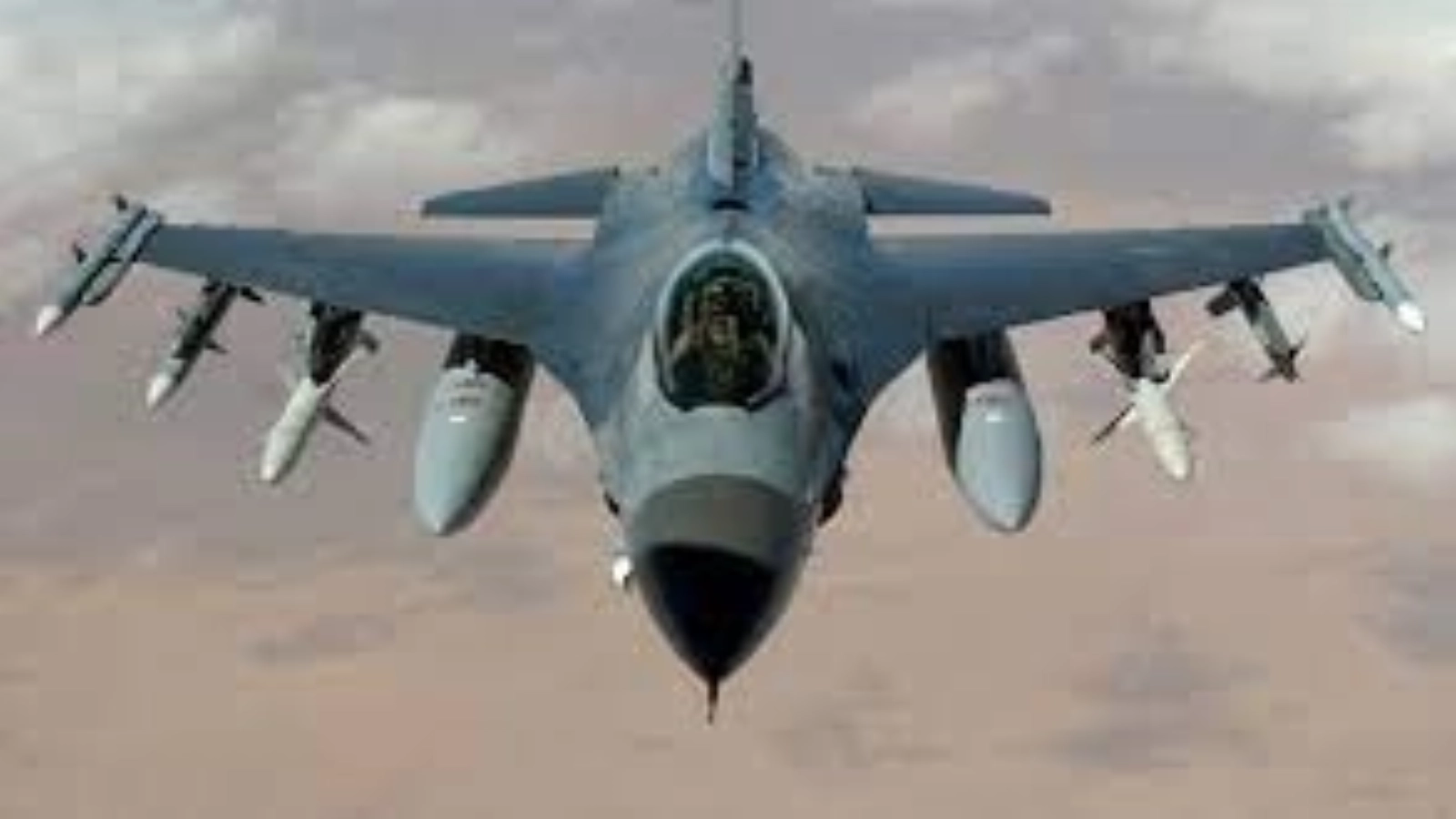

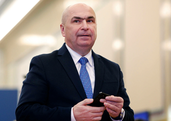



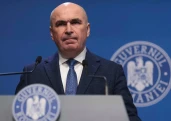
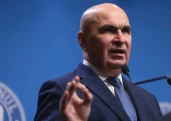
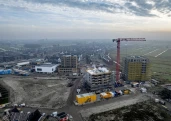
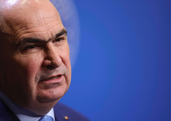
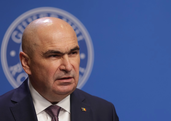
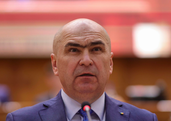
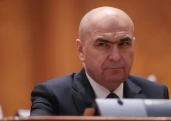
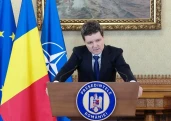







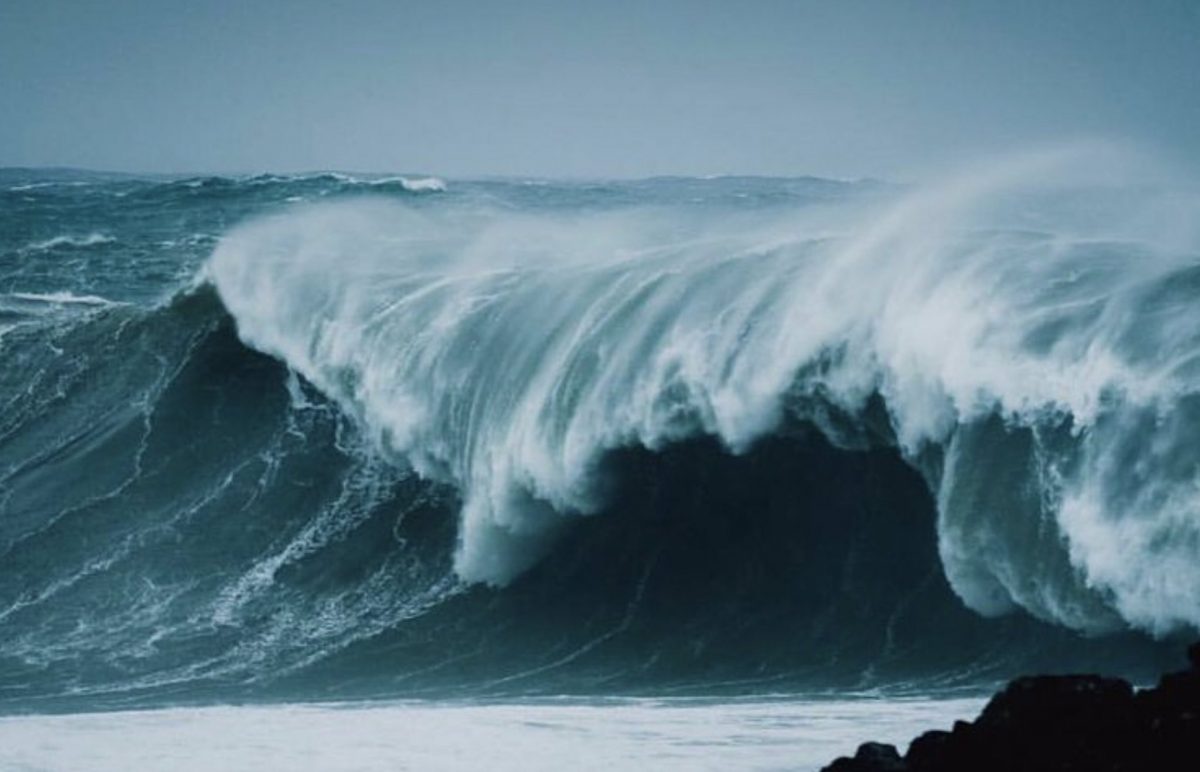






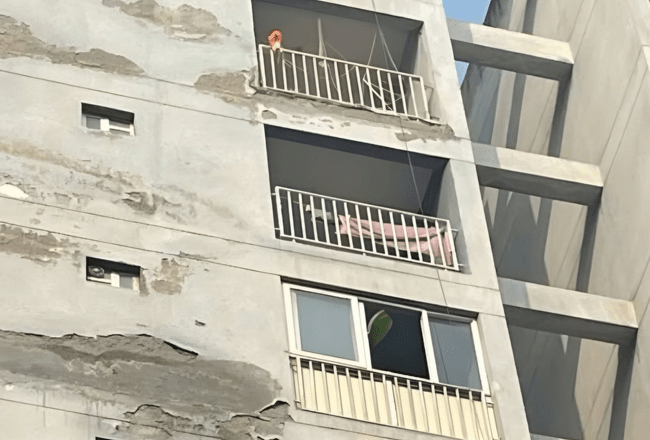


Comentează